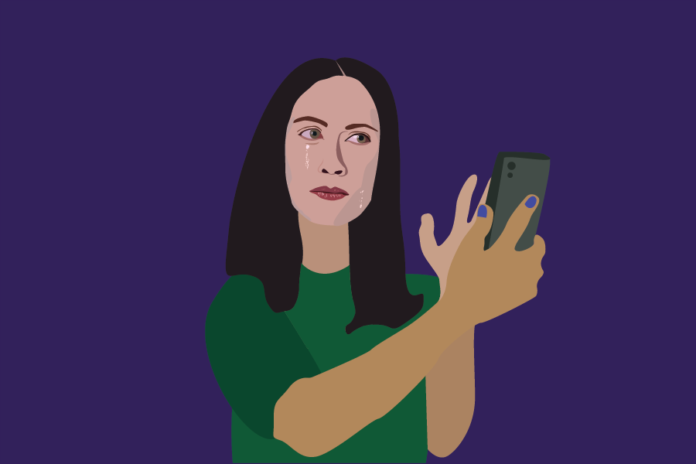Even our private accounts are for the public
I’ve had quite a tenure on Instagram. Many of us were in our tender ages during the app’s inception in late 2010, and I’m sure we all watched the app’s transformation from an unassuming photo-sharing platform to a multimillion-dollar Internet superpower.
I could say the same thing for Snapchat. Before streaks and filters, we were just chatting with our friends. It was a world in which we hid from our parents and teachers.
As these platforms evolved, we discovered new ways to manipulate them and our online presence. Meme accounts cropped up, followed by video pages. Influencers began, well, influencing. Snapchat gave us scores in the form of streaks for keeping up with our friends.
Now, counter to the overtly public nature of social media, we’ve experienced a move toward privacy. Suddenly, my best friend has a list of “close friends” on Instagram and my roommate has a “private” Snapchat story. Hell, I’ve got both! We’ve developed our external personas online, but now it’s time to curate our deeply personal sides — also online.
And so begins the rat race: Who has the most sloppy, most hilarious, most honest private account? At first, we were spamming timelines with our favorite memes and ugly selfies that we weren’t bold enough to post on our “real” accounts. This candor falls under the “relatable” trope, which is one that has been around since the early days of social media. We’ve all linked ourselves between random, blanketed postings about “just girly things” or “#relatable” experiences. The future of online relatability are finstas (“fake Instagrams”), which are just private Instagram accounts, and private Snapchat stories.
I don’t know why or how I got sucked into this mess, but I did. My finsta, which was built off the remnants of an eighth grade Lana Del Rey fan account, became a treasure trove of groveling captions and deadpan selfies. I detailed my friendlessness and crippling acne insecurity over a span of many posts.
Now, private Snapchat stories have become a host of pictures of crying users, binge-drinking and ranting. We’ve taken social media and all of its performative aspects and flipped it on its head. Finstas and private stories became their own entities governed by one rule: honesty.
Social media is based upon our crafted personas. As much as we’d like to say that we are wholly these people, we just aren’t. The person who posts filtered selfies is just as unreal as the person who posts pictures of literal trash on the ground. When we acquaint ourselves with our imperfections, it allows us to be more invested in each other because we can appreciate all of each other’s facets.
This unrelenting honesty has transformed how we interact with each other. Specifically, when someone is candid about their mental health and life experiences, they are often seen as more approachable.
This assumption often transcends social media and can serve a great benefit to our social lives. Our newfound comfort with the uncomfortable can open us to a lot of connections and experiences with others. Oversharing has become the norm. We’re now more likely to embrace our neighbor who is crying about their exams on Snapchat because we can easily relate to them.
Nowadays, the most captivating people are the ones who are provocative in their discussion of mental health. Take Billie Eilish’s “idontwannabeyouanymore” or XXXTentacion’s “Jocelyn Flores,” for example.
I’m all for being open. I’m a big oversharer, much to the chagrin of my friends. I can’t help but perceive, however, that there’s a demographic being missed in our honesty revolution. Being “reserved” nowadays has been completely disfigured. If you aren’t telling everyone about your trauma and personal life, you’re more likely to be seen as closed-off or “quiet.”
Some people don’t feel the need to post their crying selfies online, have “private” accounts or disclose details about their mental health to their friends. Just because someone isn’t buying into the idea of full disclosure doesn’t mean that they’re doing you a disservice.
We’ve begun to approach everyone with the expectation that they will, at some point, open up to us. But this actually closes off a lot of connections that could be made with others. We’re setting ourselves up to be let down when we expect everyone to be so open. We’re not entitled to everyone’s story.
Written by: Isabella Chuecos — ifchuecos@ucdavis.edu
Disclaimer: The views and opinions expressed by individual columnists belong to the columnists alone and do not necessarily indicate the views and opinions held by The California Aggie











